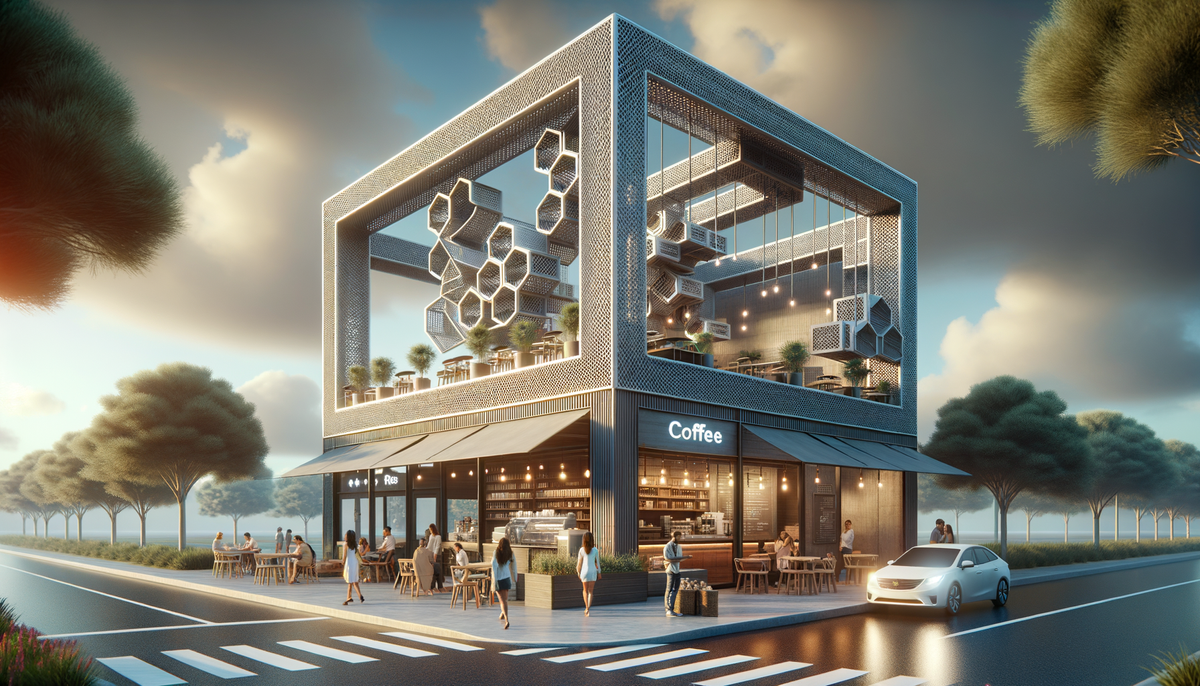The Future of Coffee: Starbucks Opens World's First 3D-Printed Store in Texas
Discover how Starbucks' innovative 3D-printed store in Texas is revolutionizing the coffee industry with sustainable building practices.

The Future of Coffee: Starbucks Opens World's First 3D-Printed Store in Texas
As the coffee industry evolves, Starbucks has taken a groundbreaking step by opening the world's first 3D-printed store in Texas. This move not only highlights the innovative spirit of one of the world's leading coffee chains but also sets a new standard in sustainable and efficient coffee shop construction. This article delves into the details of this novel venture, illustrating how it could influence the future of the coffee industry.
Starbucks' Bold Move into 3D Printing
Starbucks has always been at the forefront of innovation in the coffee industry, known for its progressive approach to customer experience and sustainability. The opening of its first 3D-printed store in Texas illustrates this commitment to innovation and environmental responsibility. According to AP News, this store, made from 3D-printed modules, not only reduces construction waste but also enhances energy efficiency.
The use of 3D printing technology in building construction represents a significant shift towards sustainable practices. The store's design utilizes advanced architectural techniques to streamline both the build time and the resources required, leading to a lower carbon footprint. Tom's Hardware reports that this project positions Starbucks as an innovator in utilizing cutting-edge technology for practical applications in the retail and hospitality sectors.
The Significance of 3D Printing in Coffee Retail
The introduction of 3D printing in Starbucks' new Texas store is an impressive feat that extends beyond just innovative construction. It speaks volumes about the potential of 3D printing to transform the retail landscape, particularly in coffee and hospitality. As noted by New Atlas, 3D printing can democratize how we think about building spaces, offering customizable and adaptable design solutions tailored to specific location needs.
This advancement can especially benefit coffee professionals by allowing for more personalized and customer-driven store layouts. Customizability in store design could enhance customer experience, turning each visit into a unique and personalized engagement, potentially increasing customer satisfaction and loyalty.
The Practical Takeaways for Coffee Professionals
For professionals in the coffee industry, Starbucks' move presents countless opportunities and insights. Embracing technology in building and design could lead to improved operational efficiencies and environmental benefits across the board. It encourages coffee companies to consider sustainable building practices that are not only environmentally friendly but also cost-effective in the long run.
Moreover, the adaptability offered by 3D printing means that coffee shop designs can evolve rapidly to meet changing consumer demands or branding strategies. This flexibility can reduce downtime between concept, construction, and launch, a crucial factor in the fast-paced world of retail coffee.
Conclusion: A Future-Oriented Coffee Experience
Starbucks' first 3D-printed coffee shop represents a substantial step forward in integrating advanced technology with consumer spaces. It is a clear demonstration of how coffee companies can lead the charge in sustainability and efficiency innovation. This pioneering project offers a blueprint for the future of coffee retail, combining state-of-the-art design with sustainable practices.
For coffee professionals and business leaders looking to stay ahead of the curve, exploring these innovations in building technology is essential. Opportunities abound for those willing to innovate and adapt.
Explore the Trends: As the coffee industry continues to evolve, staying informed about the latest developments and innovations is crucial. Visit our blog at newsomix.com for more insights and industry updates that can transform your coffee business.




